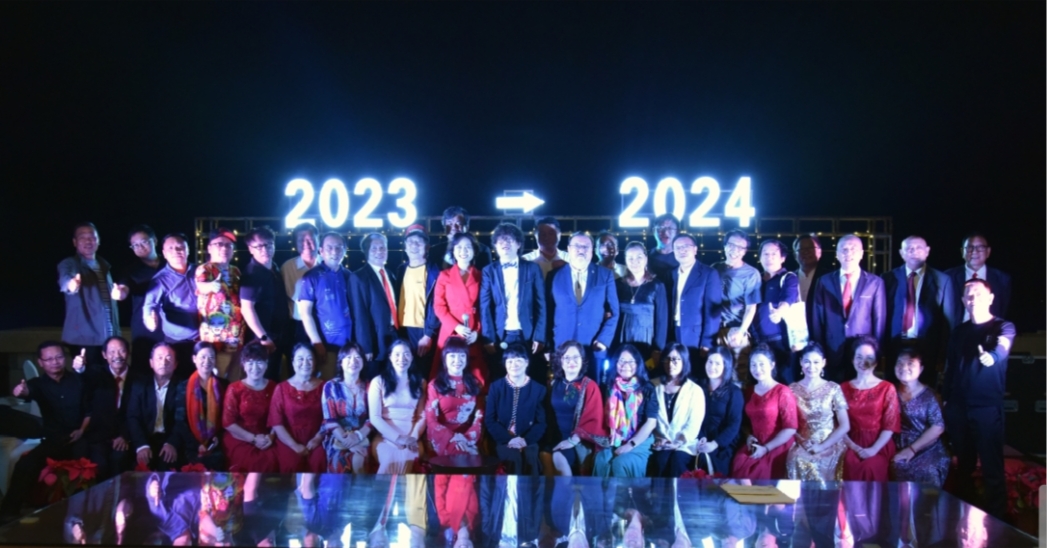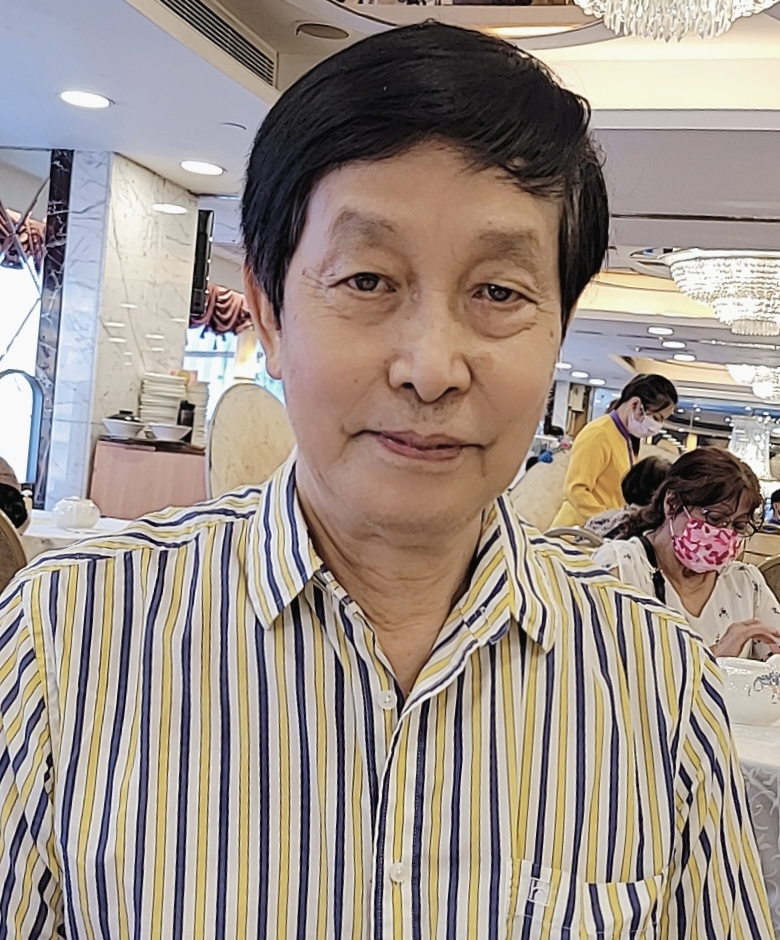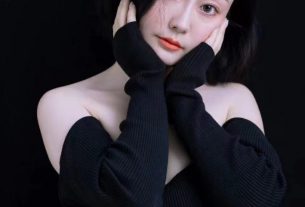The Great Poetry Movement Medal Was Awarded To The Kazakhstan Poet Ulugbek Yesdaulet
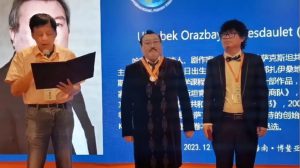
The 6th Boao International Poetry Festival was held in Hainan, China from December 29, 2023 to January 1, 2024. At the 6th Boao International Poetry Awards ceremony, Huang Yazhou, the Vice Chairman of the 6th Chinese Writers Association, and Cao Shui, the initiator of the Great Poetry Movement, respectively read out the commendation words of the Organizing Committee of the Great Poetry Movement in Chinese and English, and jointly awarded the Great Poetic Movement Medal to Ulugbek Yesdaulet, an outstanding Kazakh poet and former Chairman of the Kazakhstan Writers Association, In recognition of his contributions to great poetry and human epic. He is also the third international poet to win the medal. Nurduran Duman, a famous poet in Türkiye, and Haluk Sahin, director of Homer International Poetry Festival in Türkiye, have won the medal before.
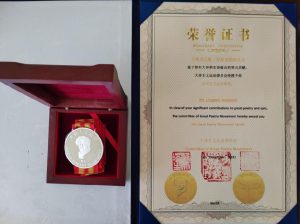
The award ceremony was held at the 6th Boao International Poetry Award ceremony. After Huang Yazhou and Yu Nong presented the Outstanding Achievement Award of the 6th Boao International Poetry Award to Ulugbek Yesdaulet, Huang Yazhou and Cao Shui, on behalf of the Committee of the Great Poetry Movement, awarded him the Great Poetry Movement Medal. The Great Poetry Medal is made of pure silver, with a diameter of 70mm, a thickness of 3.4mm, a weight of 70g, and made in Yongxing, the silver capital of China. From design to casting, it was created by famous artists. The portrait was taken by the famous photographer Song Zuifa, the medal was designed by the famous sculptor Zhang Guoliang, and the seal was carved by the famous calligrapher Gu Mingchuan; On the front is a portrait of Cao Shui, the initiator of the Great Poetry Movement, written in both Chinese and English: GREAT POETRY MOVEMENT; On the back is an ancient map of Asia, Europe, and Africa in clover’s shape, annotated with ASIA, EUROPE, and AFRICA in English. The map was drawn by German geographer Heinrich B ü ting in 1581 and represents the known ancient world at that time. Here, it symbolizes the common home of humanity, and the core idea of the Great Poetic Movement is carved around it, which is “integrating ancient and modern cultures, integrating Western and Eastern cultures, integrating sacred and secular cultures”. The Great Poetry Movement began in 2007 when Cao Shui wrote the “Manifesto of the Great Poetry Movement” and has now spread to major languages around the world. Starting from this year, the Committee of the Great Poetic Movement will select two or three international poets who have made outstanding contributions to great poetry and epic each year
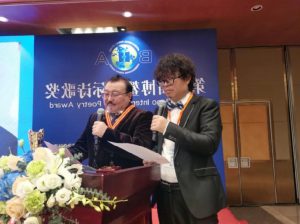
Ulugbek Orazbayuly Yesdaulet is an outstanding Kazakh poet, publicist, playwright, translator, Laureate of the State Prize of the Republic of Kazakhstan, Honored Worker of Kazakhstan and Сhairperson of the Writers’ Union of Kazakhstan was born on April 24, 1954 in Zaisan region of the Eastern Kazakhstan. He graduated from the department of journalism in Moscow University, and studied a literature course at M.Gorky University in Russia. His first book was published when he was 20. In 1982, he became the member of the USSR Writers’ Union and Kazakh Republic. Nowadays, he is the member of Kazakh PEN club. Ulugbek is the laureate of Kazakhstan Youth Union Prize for the book ( “White caravan”, 1985), Alash literary prize for the book (“Zaman-ai”, 1999). State Prize winner of the Republic of Kazakhstan ( “Felted book”, 2002), received the title of Honored Artist of Kazakhstan (2013). Winner of medal «Kurmet» (Respect). He is the founder of Kazakh white verse and verse libres. He published a two-volume Collection of poetry in 2011, a three-volume of Selected poems and five – volume of works from “Kazygurt” publishing house in 2014.
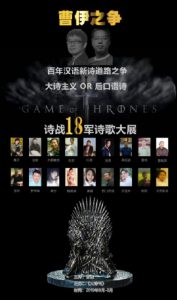
Great Poeticism or Great Poetry Movement is a poetic trend in the Chinese poetry world in the 21st century. Great poetry can be traced back to epic poetry. It was proposed by Chinese poet Hai Zi in the 1980s, and in 2007, poet Cao Shui wrote the “Manifesto of Great Poeticism” and jointly launched the Great Poetry Movement with poets such as Xi Yuan and Xi Di. They advocats the extraction of elements from various civilizations, integrating sacred and secular cultures, integrating Eastern and Western cultures, integrating ancient and modern cultures, to creat a brand new world of imagery. He founded the magazine “Grand Poetry-Literary Perspective”. Great Poetry Movement was listed as one of the 20 avant-garde poetic schools in China. In “Dancing on the Pen Tip: A Witness to the Literature of the 80s” (formerly known as “History of Literature of the 80s”) edited by Xu Duoyu, have been introduced in a special chapter in the “Literary Theory” volume. Along with Statism and Sensory Writing, they are known as the three major literary trends initiated by the post-80s Chinese writers. Representative poets include Zhuang Ling, Han Bing, Lei Xun, Shen Jia, Shen Xue, Ye Mo, Shu Xian, Ying Zi, Su Ming, Yue Jian, Peng Shujin, Yin Zixu, Xu Yanmu, Guo Liangzhong, Shan Yuyang, Nuobu Langjie and many other post-80s and post-90s poets. In 2018-2020, Cao Shui, who represented the “Great Poetry Movement” and Yi Sha’s “Post-Colloquial Poetry School”, engaged in a three-year debate, which was referred to as the “Cao-Yi Dispute” in the poetry world. In the first issue of “Literary Freedom Talk” in 2023, Cao Shui, who wrote an article titled “Cao-Yi Dispute and the Ten Major Disadvantages of the Chinese Literary World” in the form of a cover poet, summarized that the “Cao-Yi Dispute” erupted one hundred years after Hu Shi wrote the “Trial Collection”,which is the first poetry collection published in mordern Chinese, which was probably caused by a series of factors, At that time, many people interpreted it as the “debate over the century long path of Chinese new poetry”, believing it to be the biggest controversy in the Chinese poetry world since the “Panfeng Dspute”(The Debate between Intellectuals Poets and Folk Poets in Chinese History) and the “most modern controversy of the 21st century”. The core of this debate is the issue of the direction of Chinese new poetry, whether it is the “Post-Colloquial Poetry” advocated by Yi Sha, the “Great Poetry” advocated by Cao Shu. During this process, He was able to discern the various strange current situations in the literary world, and literature called for an in-depth “literary reform movement”. Since 2017, with Cao Shui’s participation in the World Poetry Movement, the Great Poetry Movement has gradually spread to various countries around the world, and together with the World Poetry Movement(WPM) and the Poets of Planet Movement(PoP), it is known as the “Three Great Movements of World Poetry”.
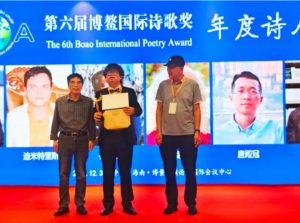
Cao Shui is one of the representative poets of the post-80s generation in China. In recent years, he has participated in a series of international activities, such as the Medellin International Poetry Festival, the Krisya International Poetry Festival in India, the Havana International Poetry Festival in Cuba, and the International Writing Plan of the China Writers Association. His works have been translated into more than 30 languages, including English, French, Russian, Indian, Polish, Danish, Italian, Spanish, and Turkish, etc. There are more than 30 famous poets writing comments in the international poetry world, renowned as a representative poet of the “young generation leading the new world” by the outstanding Indian poet Ratti Saxena. He also translated three books, including “The Song of the Dreamland”. He is a poet with international reputation and is known as the “International Cao” in the poetry world. He writes poetry, novels, fairy tales, as well as film and TV series scripts. He has published more than 40 books, including poetry collections such as “The Epic of the Eurasian Continent”, novels such as “The Secret History of Kunlun”, literature collections such as “The Animal Kingdom of Kekexili”, fairy tales such as “The Princess Snow Leopard”and created over 100 film and television scripts such as “The Peacock King”. He also founded the Great Poetry School, initiated the “Cao-Yi Controversy” in the literary world, advocated for the DramatizeNovel Movement, and the Film Poetry Movement, which had a wide influence in the literary world. In recent years, Cao Shui has won more than 50 literary and artistic awards at home and abroad, including the First Chinese Young Poet Award, the 7th Chinese Long Poetry Award, the “Literary Star” of the 5th Qinghai Youth Literature Award, the 4th Cao Yu Cup Script Award, the Apolo Dionysus Poetry Award of the 8th Rome Contemporary International Academy of Poetry and Art Award, and the 2021 Russian Golden Knight Award. His works have gained dual recognition from the literary world and the market. He is considered one of the representative writers of the post-80s generation in China.
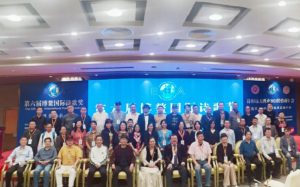
In addition to Cao Shui, the initiator of the Great Poetic Movement, deputy editor in chief of World Poetry, and executive deputy secretary-general of the Boao International Poetry Festival, more than 60 poets who participated in this poetry festival witnessed the award ceremony. Huang Yazhou, Vice Chairman of the 6th Writers Association of China and Chairman of the Boao International Poetry Festival, Xu Jingya, former Professor of the Poetry Center at Hainan University and Honorary Chairman of the Boao International Poetry Festival, Ai Zi, Vice Chairman of the Hainan Writers Association and Vice Chairman of the Boao International Poetry Festival, Che Yangao, Deputy Director of the Organizing Committee of the 6th Boao International Poetry Festival and winner of the Lu Xun Literature Award, Yu Nong, Vice Chairman of the Boao International Poetry Festival and President of the World Poetry Magazine, Hu Qiuqiu, Vice Chairman of Hunan Writers Association and President of Provincial Poetry Society, Yang Siping, Professor and Doctoral Supervisor of Shanghai Foreign Studies University, Zhang Deming, Professor of Lingnan Normal University and Director of Southern Poetry Research Center, Zhang Wuwei, Professor of Chifeng College and Editor in Chief of Poetry Weekly, Luo Luo, Director of Hong Kong Poetry Festival Foundation and Deputy Director of World Poetry Network Evaluation Committee, and President of Jiuzhou Poetry and Literature Magazine of Shanxi Federation of Literary and Art Circles Bi Futang, editor in chief of “Contemporary Poets” magazine, Tan Yantong, editor in chief of “Hong Kong Literature and Art” magazine, Nan Ou, member of the Presidium of Guizhou Writers Association and President of Guizhou Poetry Society, Chen Qunzhou, vice president of Hunan Poetry Society and Chairman of Hengyang Writers Association, Yang Yi and Qingxin, members of the World Poetry Network Evaluation Committee, Liang Yongli, vice president of Zhanjiang Writers Association and editor in chief of “Zhanjiang Literature”, and Du Chunxiang, executive editor in chief of “Guizhou Poetry”, Song Bo, Director of the Qingyang Operations Center of Shihe Yuanfang Liquor Industry, Li Bujia, Tao Jie, Hua Yu, judges of the 6th Boao International Poetry Award, Ulugbek Orazbayuly Yesdaulet (Kazakhstan), Shi Huang, Yang Jijun, Tang Dianguan, Xue Ying, San Quan, and Sun Kuan (Singapore), award-winning poets of the 6th Boao International Poetry Award, etc. Foreign award-winning poets Dimitris P. Kraniotis (Greece), Adel Khozam (UAE), Shirani Rajapakse (Sri Lanka), and Nicole Voskresnaya (Russia) who were unable to attend the award ceremony attended the opening ceremony and ceremony via video. Han Qingcheng, Secretary General of the Boao International Poetry Festival and Director of the Boao International Poetry Award Selection Committee, presided over the opening ceremony and award ceremony.
[xyz-ihs snippet=”In-article-ads”]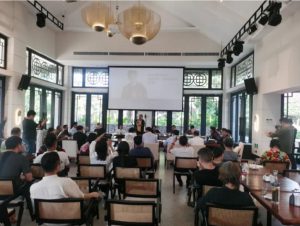
On the afternoon of December 31st at 3 o’clock, the reading session of the poet Luo Luo’s poetry collection “The World Sees Me” was held at the Su Er Bar of the Kaiyuan Hotel in Chess Bay on the west coast of Hainan. The reading conference is hosted by Han Qingcheng, with speeches by Xu Jingya, Du Juexiang, Yang Siping, Hu Qiuqiu, Zhang Deming, Zhang Wuwei, Yu Nong, Ai Zi, Cao Shui, Shi Huang, Li Bujia, Tao Jie, Bi Futang, Tan Yantong, Huayu, Gong Baiyun, Liang Yongli, Nan Ou, and others. The book title points to the universality, modernity, foreign poetry writing, and international exchange of poetry and poets, And Luo Luo’s poetry conducted a discussion style reading on multiple topics such as the presentation of existence, and gave an overall affirmation to the poetry collection. Some attendees conducted a thorough reading of the works in the poetry collection through careful reading, focusing on language, rhetoric, and logic. They also pointed out the shortcomings of some works and the issues that authors should pay attention to. The reading conference atmosphere was lively, and by the end of 6 pm, there were still many attendees who were unable to speak.
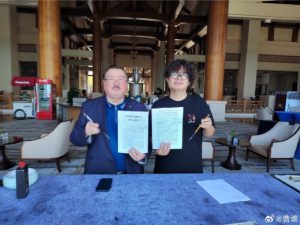
Cao Shui summarized in “A Brief History of Modern Chinese Poetry” that Xu Jingya proposed the judgment of “Great Transformation” at the seminar, Du Juexiang called for “Great Transformation”, and CaoShui also called for “Great Integration”. In the new year, everything foreshadows the beginning of a great transformation of modern Chinese poetry. The famous poet Ulugbek Yesdaulet from Kazakhstan and more than 60 domestic and foreign poets witnessed this poetry festival together. In the future, history may be named the “Kaiyuan Controversy” like the “Panfeng Controversy”.
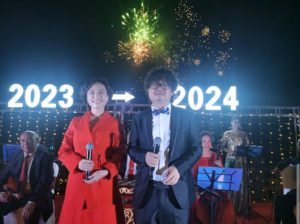
On the evening of the 31st at 21:21, the “Qiziwan New Year Poetry Festival” was organized by the People’s Government of Changjiang Li Autonomous County, the Propaganda Department of the Communist Party of China Changjiang Li Autonomous County Committee, the Tourism and Cultural Radio and Television Sports Bureau of Changjiang Li Autonomous County, the Federation of Literary and Art Circles of Changjiang Li Autonomous County, and the Writers Association of Changjiang Li Autonomous County. It was also co-organized by the Chess Bay Tourism Resort Management Committee of Changjiang Li Autonomous County and the Kaiyuan Chess Bay Resort in Hainan, At the observation deck on the fifth floor of Kaiyuan Hotel, the participating poets and artists performed on the same stage. The evening party is co-hosted by Hao Junmei and Cao Shui.
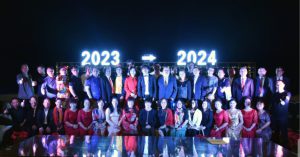
Ulugbek recited his work “Idyll” in Kazakh, and Cao Shui recited the Chinese version of this poem. Xu Jingya, Ai Zi, Yu Nong, Hu Qiuling, Han Qingcheng, Li Bujia, Luo Luo, Cao Shui, Tan Yantong, Nan Ou, and Hua Yu recited their own poems, including “I Tell My Son”, “Dai Shengniao”, “The Great Wall”, “The Sea, I Only Know Small Things”, “Why Does the Sun Always Set in the West”, “Answer”, “The Twilight of Trujillo”, “Great Dance of Sorrow”, “The Great Waterfall”, “A Rain from Guiyang to Hainan”, and “I Flip My Pocket”. Fan Qun and Hao Junmei jointly recited Huang Yazhou’s poem “The Waves of Boao, Jumping into Poetry at least once a year!”. Sun Kuan, Chen Bolai, Du Chunxiang, Huang Chengzhi, Zi Qingyouran, Su Xiaoqing, Huang Xiaocong, Tan Qinghong, Zi Ling’er, Bi Futang, Xue Ying, Tang Dianguan, Gong Baiyun, Liang Yongli, Tao Jie, Zhang Wuwei, and others recited poetry works with the theme of “Chess Bay”. (End)

新西兰 澳纽网出品
编辑:小图
[xyz-ihs snippet=”multiple-ads”]1,430 views


